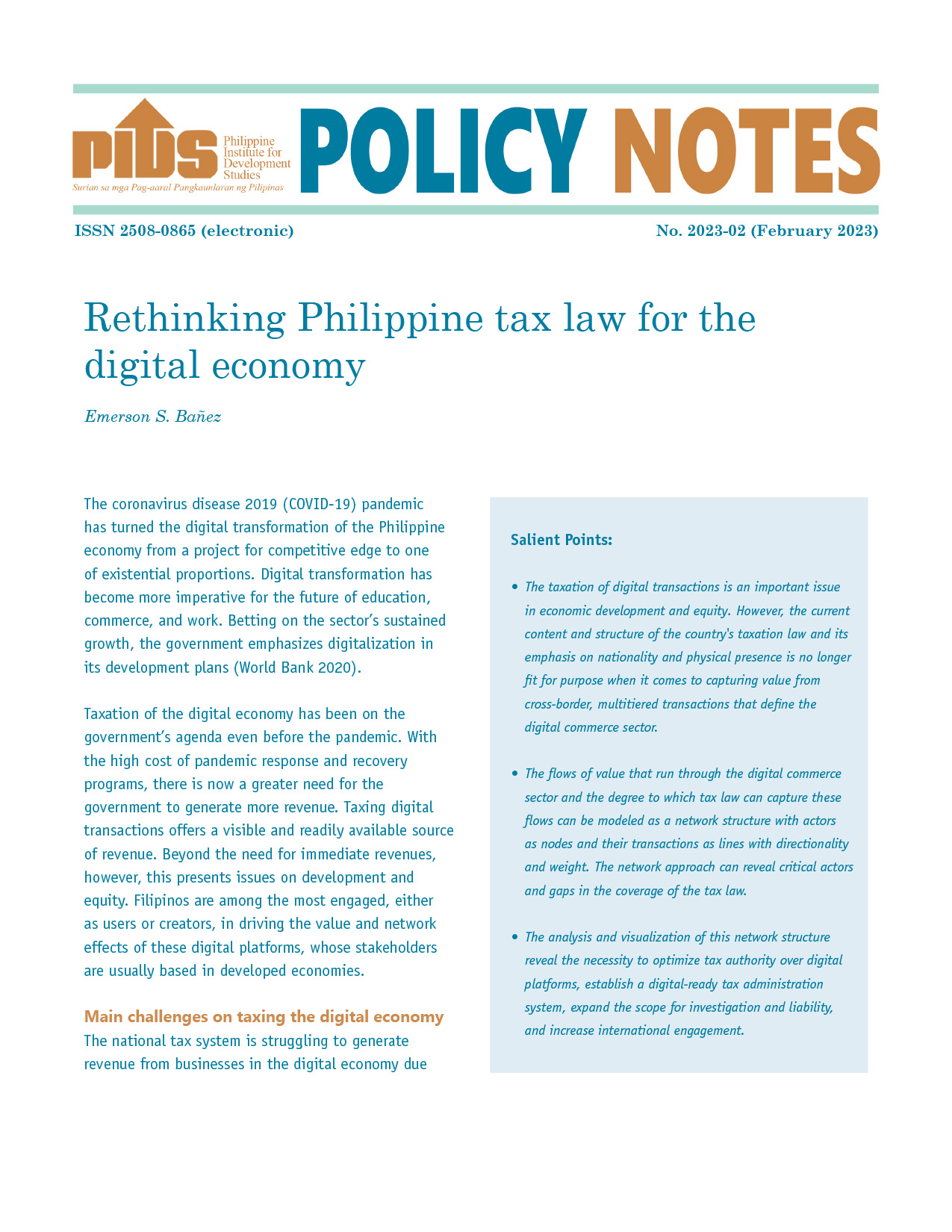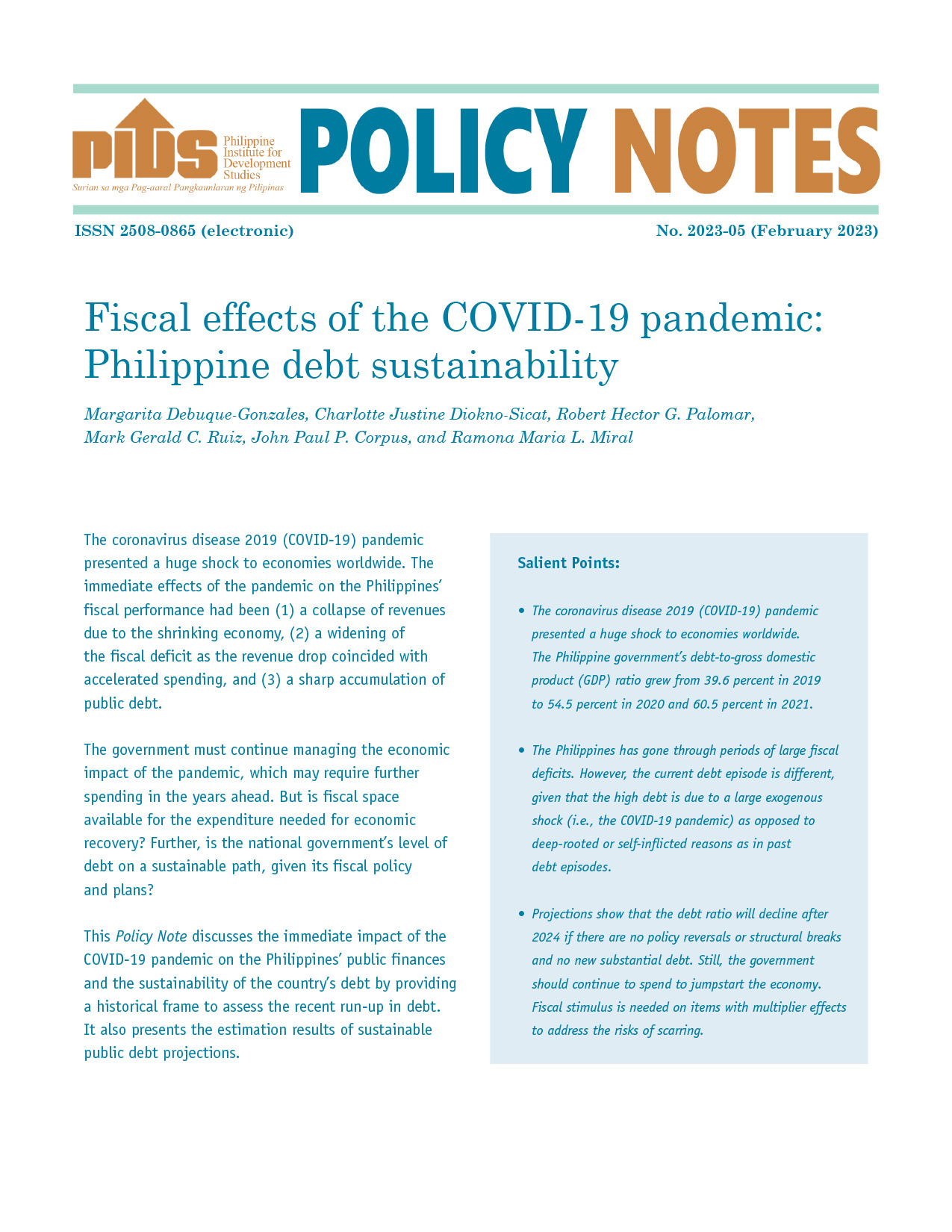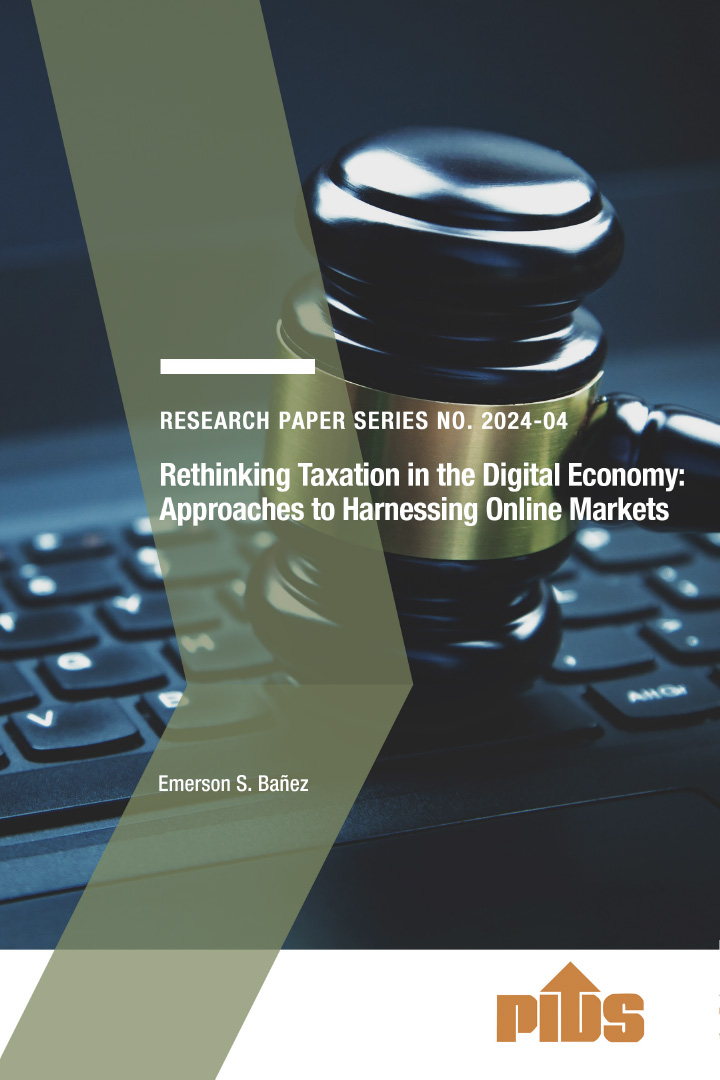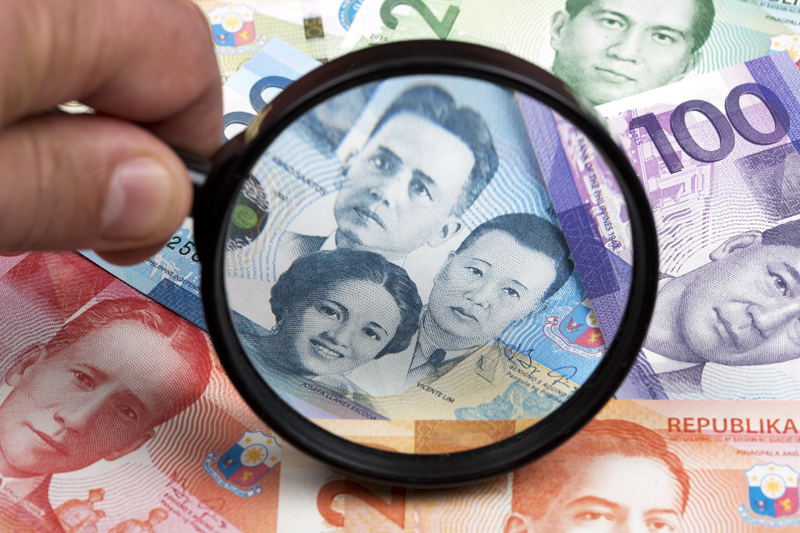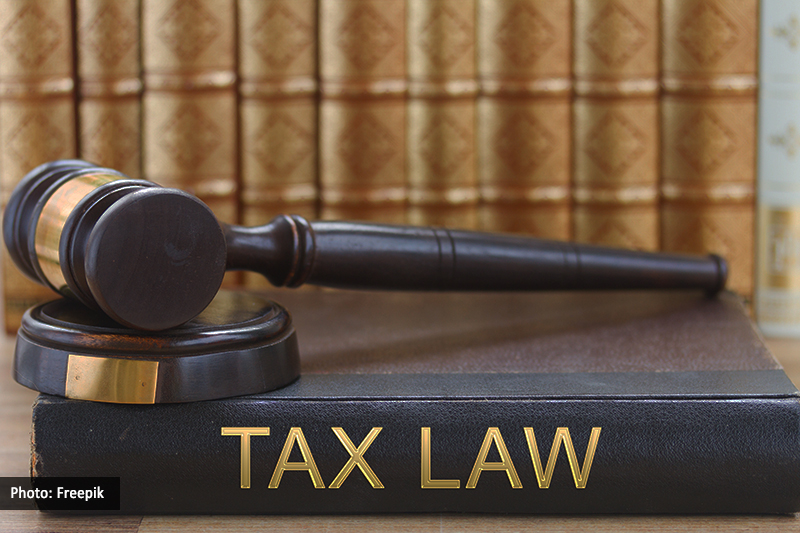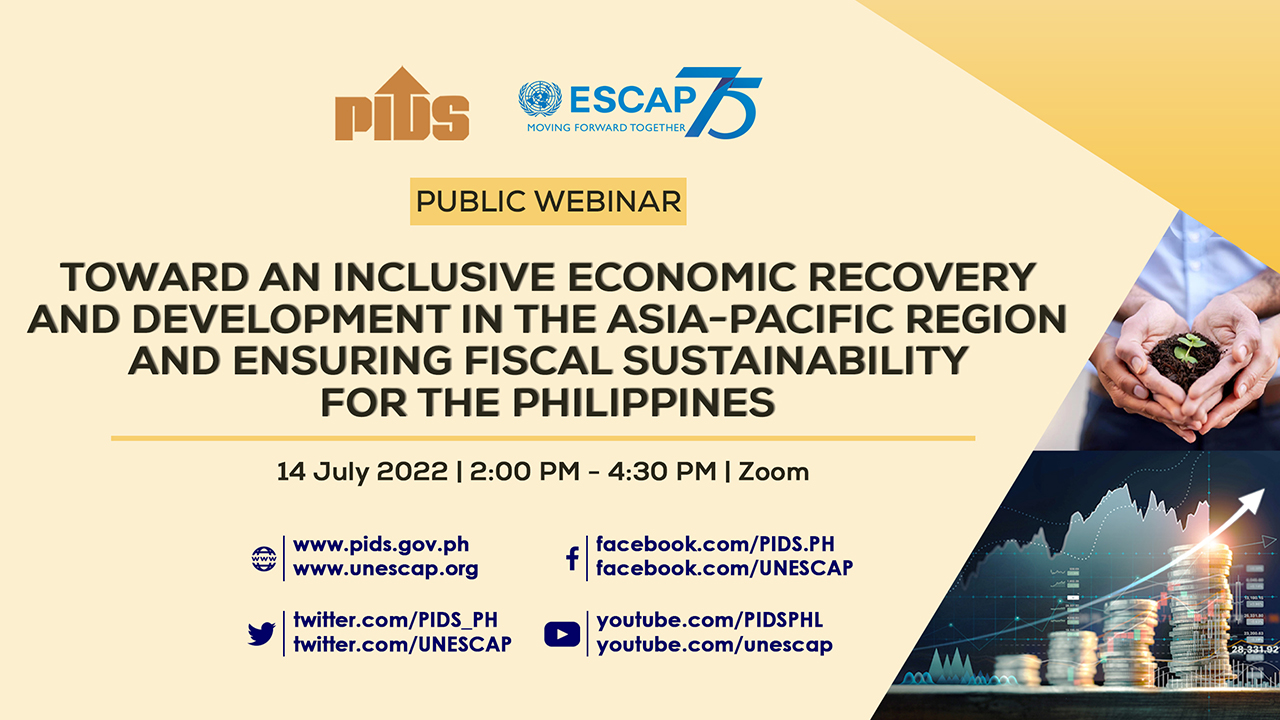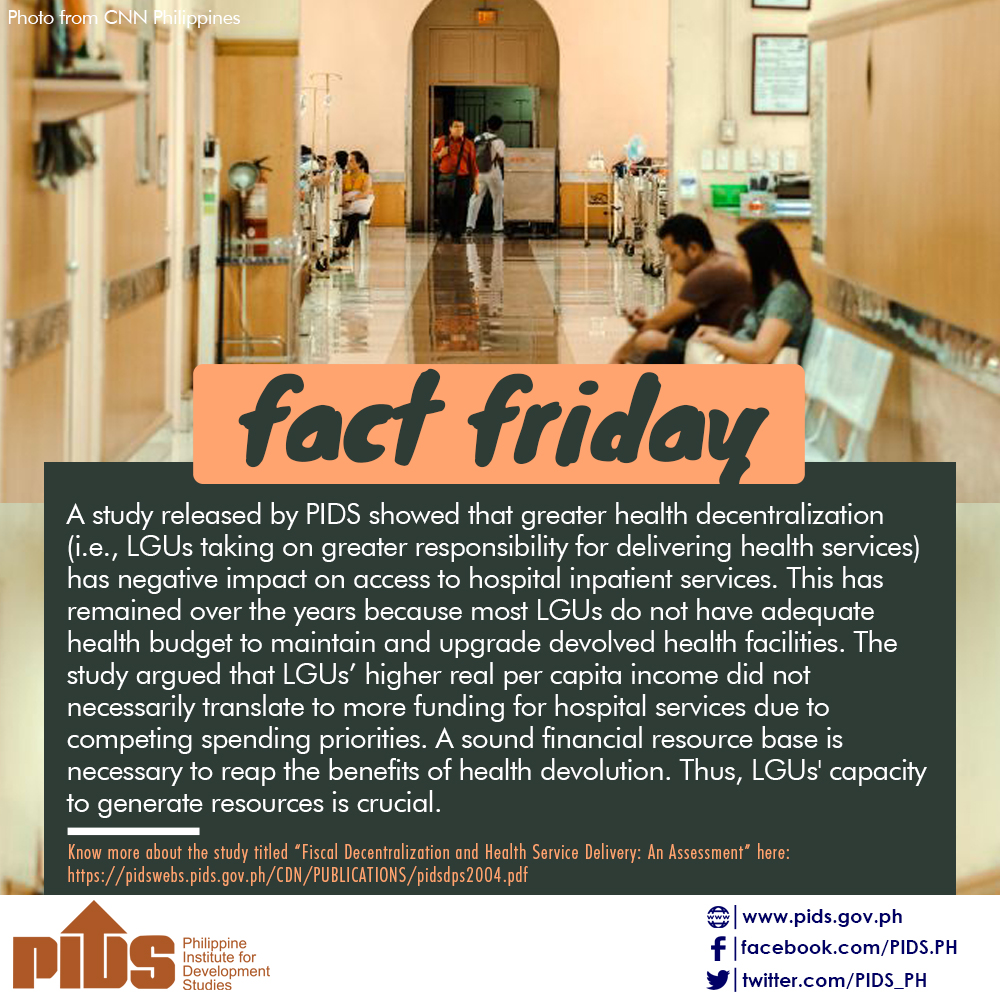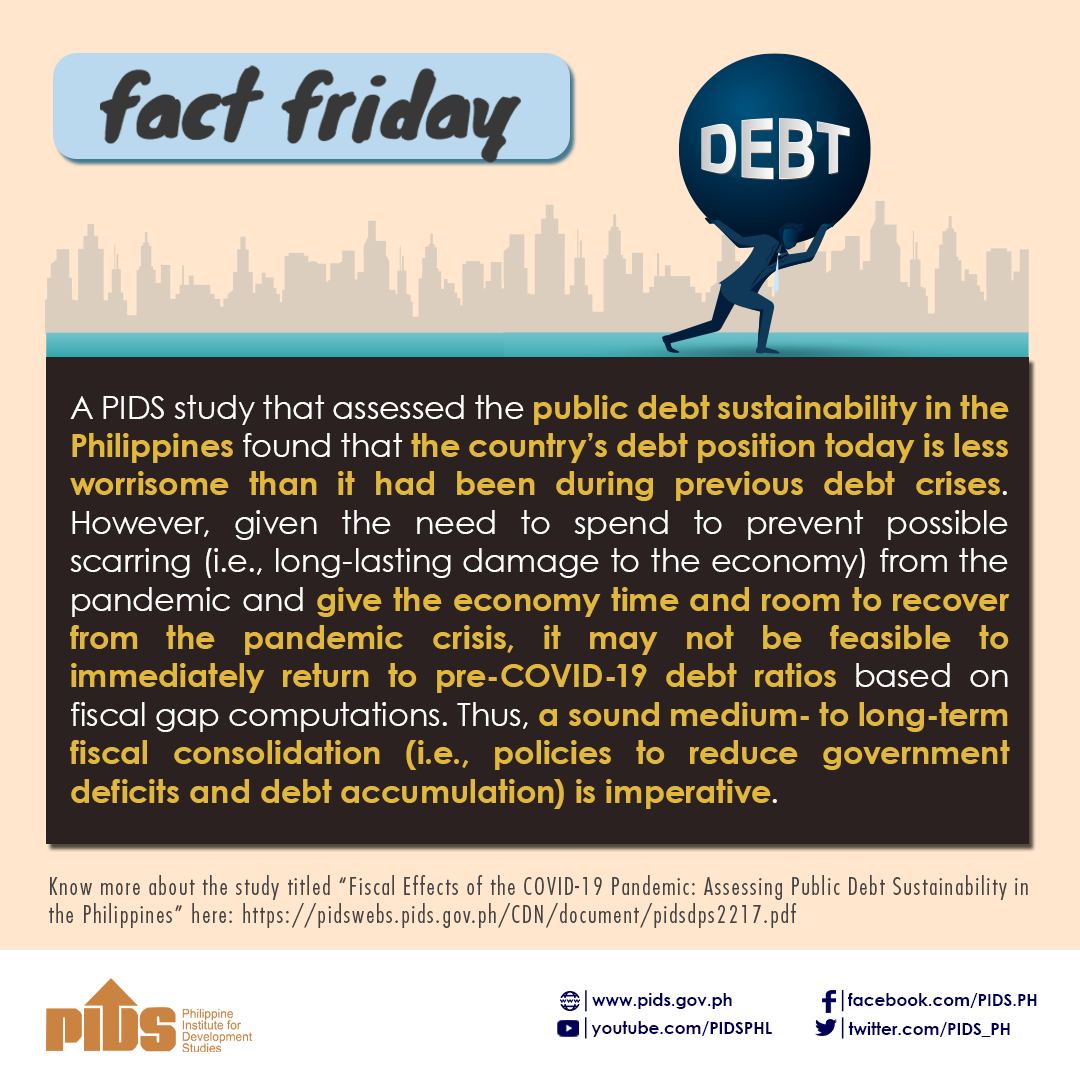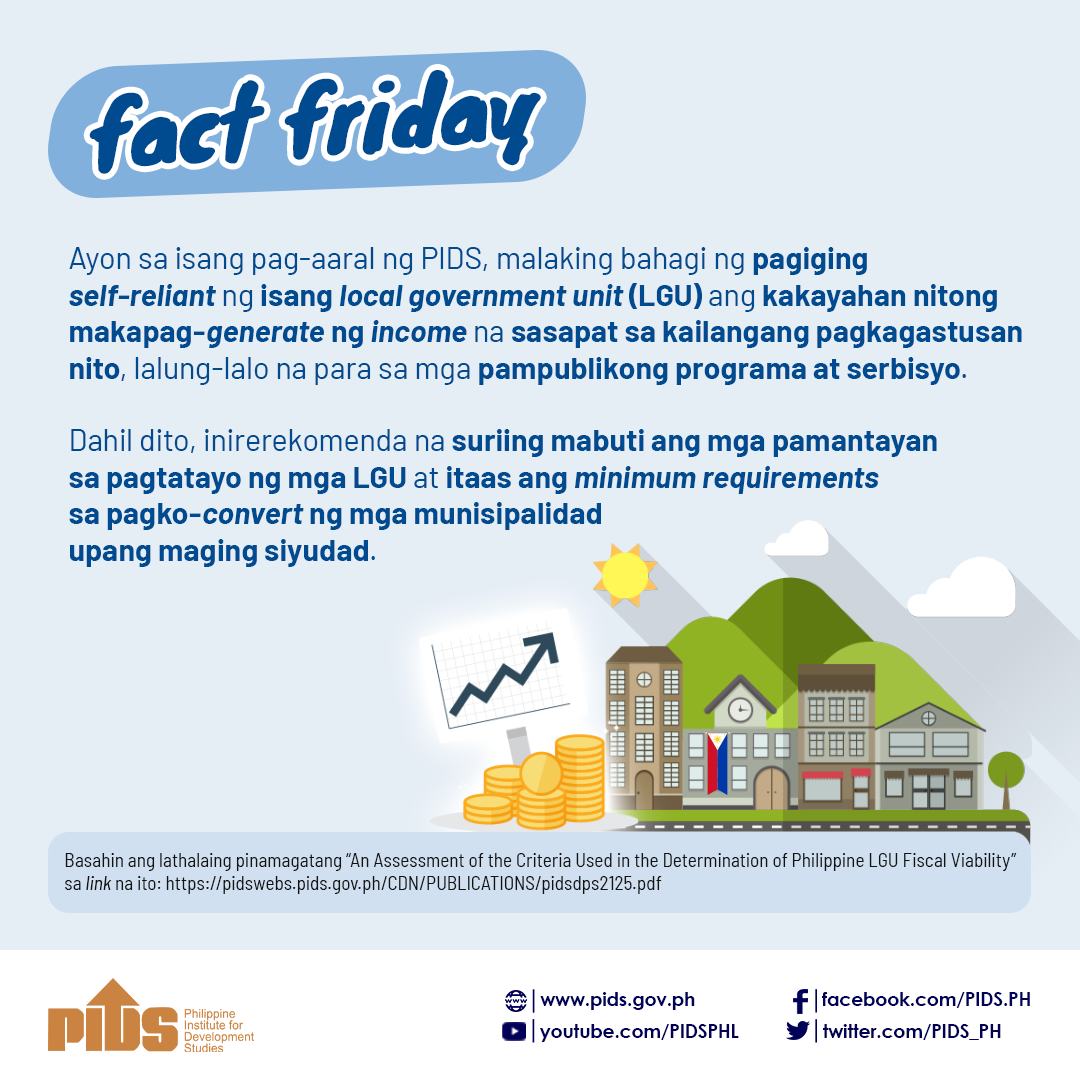The introduction of new taxes is crucial to ensure the country’s fiscal sustainability, according to a study from the state-owned think tank Philippine Institute for Development Studies (PIDS).
Philippine Economic Society President Charlotte Justine Diokno-Sicat as well as PIDS Senior Research Specialist Robert Hector G. Palomar and Research Analyst II Mark Gerald C. Ruiz said in a recent briefing that taxes would ensure the country’s tax buoyancy remains above one.
The researchers said when tax buoyancy is above one, tax revenue is moving faster than GDP which aids in reducing fiscal deficit and supports government spending. If it is less than one, there could be a risk to fiscal sustainability.
“Relatively, there are buoyant taxes but we might still be able to improve. In particular, I’m a strong advocate of the property valuation efforts that are currently in Congress right now,” Diokno-Sicat said in a recent presentation.
In a presentation, estimates showed that short-run tax buoyancies were as high as 1.183 while long run estimates were as low as 0.921, indicating that there is a need “for a flexible tax system.”
Implementing progressive tax systems, the researchers said, are needed especially if reduced spending is not viable for governments.
“More comprehensive tax reforms may have warranted a longer time to be fully implemented, and enforcing the changes may have occurred later than the effective date of the policy. Tax reform dummy variables are then lagged two years as seen in the (research),” the researchers said in a discussion paper. Tax buoyancy was only a part of the study which focused on the 2023 national budget and the financing needed for it.
The researchers noted that 75.85 percent of the national budget is composed of current operating expenditure (COE). For the past 40 years or between 1983 and 2022, COE has composed the bulk of the national budget.
Infrastructure and other capital outlay expenditures has increased as a percentage of GDP at 5.2 percent with 5 percent of GDP going to infrastructure alone. Allocation for this peaked in 2017 at 6.7 percent.
Social services and economic services also accounted for the top two expenditures by sector at 39.3 percent and 29 percent, respectively.
In terms of line agency, the Department of Public Works and Highways (DPWH) accounts for P717.31 billion, the largest among all agencies despite a contraction of 8.7 percent compared to last year.
In terms of growth, the Department of Transportation (DOTr) saw the largest increase at 121.5 percent to P166.7 billion in 2023. This agency accounted for 3.9 percent of the entire budget.
The researchers also said the government’s net financing requirement for the budget is 8.8 percent of GDP or P2.082 trillion. This is composed of P1.651 trillion worth of net domestic borrowing and P431.037 billion net foreign borrowing.
The House of Representatives on Monday approved on third and final reading three priority tax bills of the Marcos administration and the 19th Congress.
After the approval at the lower chamber, House Bill (HB) 4102, or the Single-use Plastic Bags Tax Act; HB 4122, or the VAT on Nonresident Digital Service Providers (DSP); and HB 4339 or Package 4 of the Comprehensive Tax Reform Program will now be transmitted to the Senate for its own deliberations. These three proposals could yield a total of P48 billion annually for the government.
Of P48-billion revenue from these tax measures, House Committee on Ways and Means Chairman Joey Sarte Salceda said some P19 billion will come from the nonresident DSP VAT, P9.3 billion from plastic bags, and P20 billion from Package 4, the bulk of which will come from removing the tax exemption on pickup trucks, and increasing the tax rates on foreign currency deposit units to 20 percent.

